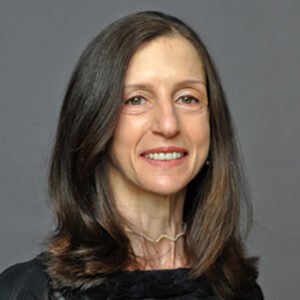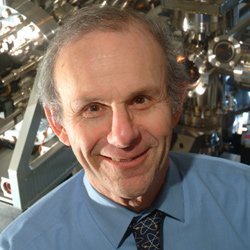News
Apply for Northwestern/Tel Aviv University Nanoscience Fellowships by Oct. 14
August 17, 2021

Applications are now open for PhD students and postdoctoral fellows at Northwestern and Tel Aviv University (TAU) for research exchange fellowships in the fields of nanoscience and nanotechnology.
This new initiative will bring together scientists and engineers from Tel Aviv University with their peers at Northwestern for research in nanoscience and nanotechnology. The goal is to facilitate a robust synergy and cross-fertilization of ideas among researchers at the two universities, with a view toward long-term collaborations.
The start date of the research visit should be between Jan. 1 and Sept. 1, 2022, with the end date determined by the duration of the research stay.
The deadline to apply is Oct. 14, 2021. Northwestern support for this initiative is provided by the Crown Family Fund for Engineering and Science in Israel.

The program began in 2005, when Tamar Seideman, professor of chemistry and physics at the Weinberg College of Arts & Sciences and an affiliated faculty member of the IIN, started graduate-level exchange programs with Tel Aviv University and the nanotechnology centers at the Weizmann Institute of Science in Israel.
“The first thing that I did was talk about it with Chad Mirkin, who immediately agreed to provide all the funds that were needed at that time,” said Seideman. “And, equally important, I had enormous help from the IIN staff.”
David Seidman, Walter P. Murphy Professor of Materials Science and Engineering at the McCormick School of Engineering and an affiliated faculty member of the IIN, became involved through circumstances that would rarely be called auspicious: an extended layover at O’Hare International Airport.
While waiting for a flight home, Yossi Rosenwaks, a professor of engineering at TAU, decided to visit Northwestern’s Evanston campus. Impressed by the Northwestern University Center for Atom-Probe Tomography (NUCAPT), Rosenwaks wrote Seidman a letter after returning home to Tel Aviv University, beginning an interaction that would bear significant fruit for both universities.
Through the program, Seideman was able to provide funding for Seidman (no family relation) to visit Tel Aviv. After a series of further meetings, Julio Ottino, dean of the McCormick School of Engineering, played a major role with Seidman, Rosenwaks, and Noam Eliaz, a professor of engineering at TAU, in formalizing a collaboration. Workshops were held at TAU in February 2015, at Northwestern in September 2016, at Northwestern in July 2018, and – health conditions permitting – again in mid-December 2021. These workshops have led to major grants and informal research projects alike.

Seidman looks at these fellowships and workshops as nucleation events.
“These events build up momentum toward more interactions,” he said. “We wanted to avoid a situation where people go, they give a talk, they put it on their CV, and that’s the end of it. It’s a boundary condition that people are talking to each other, interacting professionally, and coauthoring proposals to funding agencies. It’s important because science has become significantly more international. According to a study from the National Science Foundation, the percent of U.S. science and engineering articles coauthored with scientists at international institutions was 40% in 2018, which is up from 25% in 2006.”
“There is a world of science and scientists outside the U.S. and it is in our best interest to connect with this world, preferably early in our careers,” said Seideman. “The most important problems for scientists are too complicated to be addressed within one country, not even the U.S. Different cultures think about similar problems in different ways. It is an opportunity for diversity.”
The program received further support from the Weinberg College of Arts & Sciences and the Materials Research Science and Engineering Center at Northwestern, and then from a private donor. It now has funding from the Crown Family, which gave Seideman the opportunity to discuss expanding the program to include postdoctoral fellowships and joint research with Yael Hanein, former head of the Tel Aviv University Center for Nanoscience and Nanotechnology.
“I think that such international exchanges have a value also as a cultural experience,” said Seideman. “It is nice for our students to learn about other parts of the world not exclusively through U.S. newspapers, and, of course, vice versa. I was happy to hear from students who returned what they discovered, what they liked, and why would they go back. And I truly appreciate the Crown Family funding, which will allow many more young people to benefit from this program.”